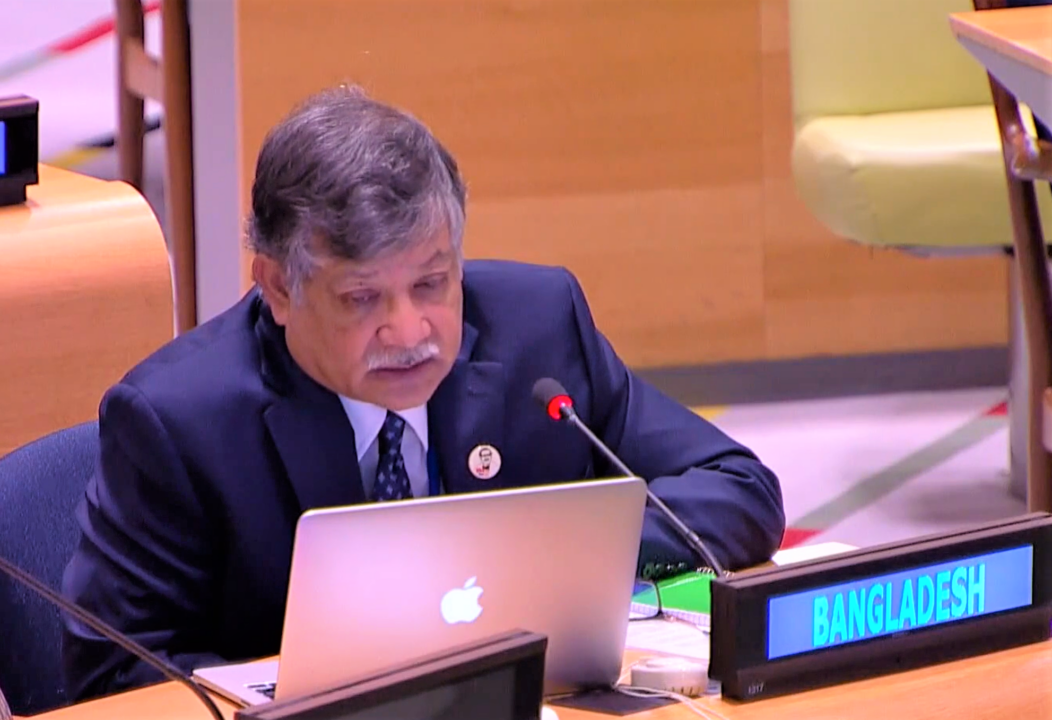I thank IOM for organizing this very timely debate. I also thank the panelists for their insightful remarks.
Bangladesh is one of the most climate vulnerable countries and displacement is one of the common consequences we suffer due to climate change and associated disasters. The World Bank’s Groundswell Report 2021 estimates that salinity, rising sea levels and other impacts of climate change in Bangladesh may drive 13.3 million climate migrants by 2050.
We have taken many transformative measures at the national level to tackle perilous impacts of climate change consistent with implementing the Paris Agreement. Our flagship policy document, the Eighth Five Year Plan highlights the need to address the environment, climate change adaptation and mitigation in a broader development context. We have established Climate Change Trust Fund with our own resources back in 2009. We have also undertaken the biggest housing project for climate migrants in Cox’s Bazar, Bangladesh, the “Khurushkul Ashrayan Prokalpa”.
As mentioned by Excellency the PR of Ghana, the During our Presidency of Climate Vulnerable Forum, we launched ‘Mujib Climate Prosperity Plan’, which aims to put Bangladesh on a sustainable trajectory from “one of vulnerability to resilience to climate prosperity”. We are ready to support other vulnerable countries to develop their own prosperity plans.
However these national actions are inadequate if global actions on climate induced displacement are not scaled up. We are worried that despite all evidences including those coming from the affected countries themselves, the international community is still far from agreement on the protection of persons displaced by climate change and associated disaster.
We are pleased that the recently adopted General Assembly Resolution requesting for an advisory Opinion of the ICJ on obligations of States in respect of climate change recognizes the clear link between climate change and displacement of affected persons. We hope the advisory opinion of the ICJ, if and when given, will clarify the legal vacuum on this question and mobilize stronger international actions. Bangladesh was a member of the core group that led the process along with Vanuatu and other members.
My second point is financing. Bangladesh has last year launched its 27 year- long national adaptation plan which includes projects to support the persons displaced by climate change and are forced to take shelter in urban slums. However it would require 230 billion US dollars for its implementation. We call upon our partners to come forward and support the national adaptation plans developed by national governments, such as ours. We also continue to seek a 50-50 distribution between adaptation and mitigation from international climate financing.
I thank you

